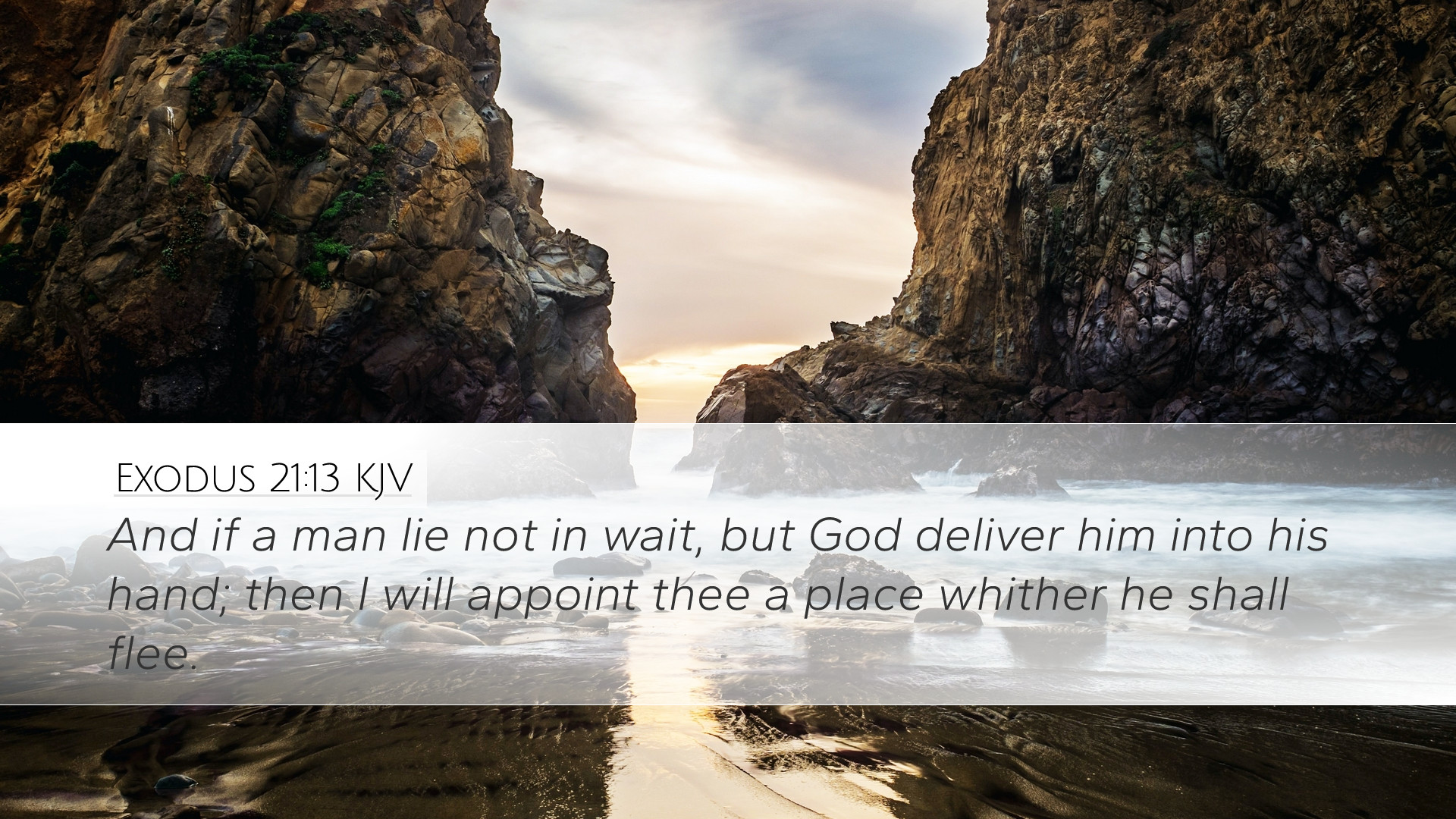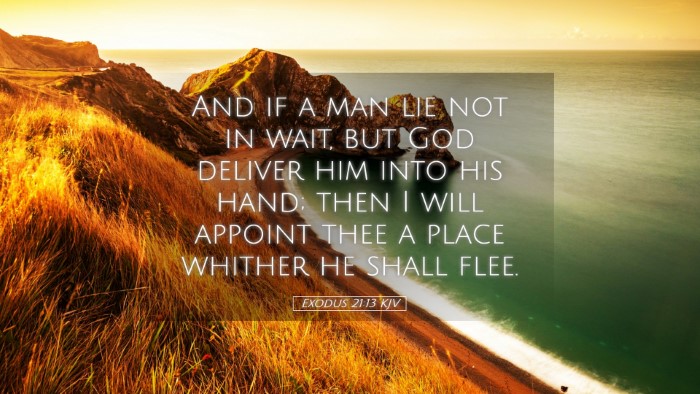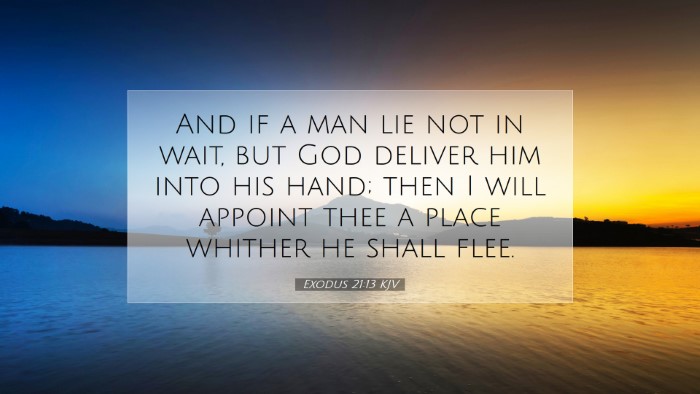Commentary on Exodus 21:13
Verse: Exodus 21:13
"And if it be a mischief coming upon him, then thou shalt give life for life."
Introduction
This verse is part of the larger legal framework that God provides to the Israelites, establishing laws that govern behavior and societal interactions. It highlights the principles of justice, accountability, and divine order, which are foundational to both the ethical structure of ancient Israel and the moral framework upheld in Christianity today.
The Legal Context
In the preceding verses of Exodus 21, God outlines specific cases concerning personal injury and the consequences of wrongful actions. This verse addresses situations where a death may occur due to negligence or unintended actions. The intention behind these laws is to ensure justice and balance, particularly in matters relating to life and death.
Insights from Matthew Henry
Matthew Henry emphasizes the principle of equivalence in justice as delineated in this verse. He writes that the law prescribes a proportionality in retribution, aligning with the ancient maxim of "an eye for an eye." Henry points out that this principle was not intended to incite vengeance but to provide a framework where neither excessive punishment nor leniency could undermine justice. He suggests that this reflects God's commitment to order and righteousness. Ensuring accountability for one's actions is pivotal not just in legal terms, but also in spiritual and moral dimensions.
Insights from Albert Barnes
Albert Barnes expands on the implications of the term "mischief" as used in the verse. He stresses that this refers to an unintentional act that might lead to harm or even death. Barnes highlights the need for the law to differentiate between deliberate malice and accidental harm. This distinction safeguards against wrongful punishment, encouraging a legal system that values intent alongside action. He remarks on the importance of grace and mercy as aspects of divine law, suggesting that the seriousness of circumstances should influence judgments rather than a rigid application of the law alone.
Insights from Adam Clarke
Adam Clarke takes a broader view by connecting this legal directive to the overarching theme of divine justice. He notes that the life of an individual holds immense value before God. Clarke illustrates that, while human perspectives may vary, the sanctity of life underlies this commandment. He points out that the underlying rule—life for life—serves both as a deterrent against violence and a guiding principle for societal harmony. Clarke further emphasizes that the heart of the law lies in its intention; it is not merely punitive but educative, aimed at fostering greater understanding of righteousness and responsibility among the people.
Theological Reflections
This verse invites readers to reflect deeply on several theological principles:
- The Value of Life: The passage underscores the intrinsic worth of human life, which God has designed with purpose. Recognizing this value fosters a culture of respect and responsibility.
- Justice and Mercy: The balance of justice with mercy reveals God's character as both righteous and compassionate. Christians are called to pursue justice while embodying grace.
- Accountability: Individuals are accountable for their actions, which fosters an environment where moral and ethical behavior is encouraged among the community.
- Restoration: The notion of life for life extends beyond mere retribution; it encompasses the idea of restoring relationships and society to their intended order.
Practical Applications
For pastors, students, theologians, and scholars, the implications of Exodus 21:13 extend beyond ancient legalisms. The call for justice resonates in contemporary discussions about ethics, law, and morality. Here are some practical applications:
- In Ministry: Teach congregations the importance of justice in their personal and communal lives. Help them understand the applications of biblical principles to modern legal and ethical discussions.
- In Academia: Foster a scholarly exploration of biblical law, emphasizing how it interacts with modern legal systems and moral philosophy. Encourage critical thinking on the implications of justice and grace.
- In Personal Development: Encourage individuals to examine their own actions through the lens of intent and impact. Challenge them to practice ethical decision-making in everyday life.
- In Community Engagement: Encourage churches to advocate for justice in their communities, addressing issues such as discrimination, violence, and inequity, modeled after the divine principles presented in this scripture.
Conclusion
Exodus 21:13 serves as a compelling reminder of the gravity of life and the principles that govern our interactions with one another. Through the insights gained from public domain commentaries such as those by Matthew Henry, Albert Barnes, and Adam Clarke, we see a comprehensive understanding of justice that encompasses accountability, the value of life, and the interplay of divine mercy. Understanding this verse invites a deeper commitment to living out these principles in our daily lives, as we strive to reflect God's holiness and love in a broken world.


